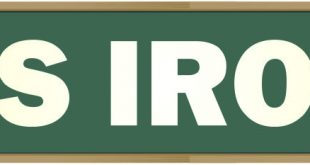The Father of Pakistan Air Force
“As an old-time officer and a gentleman to his fingertips, as an honest man of moderate means, and as a man who genuinely wished to do good for the poverty-stricken, uneducated of this country, there was no way, no way at all, that Air Marshal Asghar Khan could succeed as a politician of Pakistan, given the environment, the atmosphere that prevails and the mindset of the majority.” — Ardeshir Cowasjee in his article “We never learn from history”
Air Marshal retired Asghar Khan, the first native Commander-in-Chief of Pakistan Air Force (PAF), passed away on 05 January at the age of 96. He was one of the few larger-than-life figures in the history of Pakistan. His vision and honesty, integrity and commitment to his mission were just a few of his attributes. He was an iconic soldier who will be remembered for his historic contributions for laying foundations of a strong Pakistan Air Force. As the real builder of PAF, he made it the lead star among the fighting forces to this date and as the youngest in command of a world renowned air force, he proved to be the last word in performance. Despite having a military background, the late Air Marshal always advocated that Pakistan should be a welfare state. This outspoken and blunt Pakistani tried many times in his political life to bring light into the darkness that Pakistan has been shrouded in through most of its existence.
Air Marshal Asghar Khan was born in Jammu and Kashmir on 17 January 1921. His father, Brigadier Rahmatullah Khan, was a Pathan officer of the Jammu and Kashmir State Forces. He belonged to the Malikdin clan of the Pashtun Afridi tribe from Tirah. Asghar Khan and all his brothers, except the youngest one, joined the armed forces of Pakistan, after the family relocated to Abbottabad following the partition of India. In fact, two of his brothers, Squadran Leader Khalid Khan and Pilot Officer Asif Khan embraced martyrdom during service with the Pakistan Air Force.
After attending the Aitchison College, Lahore, Asghar Khan obtained a place at the Prince of Wales Royal Indian Military College in 1933, and joined the Indian Military Academy in 1939. Initially, he was commissioned into the Indian Army as a Second Lieutenant, starting his active duty from the Royal Deccan Horse in December 1940. However, this was short-lived as he was attached to No. 9 Squadron of the newly-established Indian Air Force in 1940. In 1944, he assumed the command of his unit and commanded the aerial missions of No. 9 Squadron in Burma, directing and commanding aerial operations against the Japanese forces. After World War II, Asghar Khan was sent to United Kingdom to join the RAF Staff College at Bracknell, wherefrom he completed a staff course. Later, Asghar Khan conducted his postgraduate research and studies from Imperial Defense College where he was awarded MSc in military administration. Upon his return, Asghar Khan was the most senior officer in the Royal Indian Air Force.
On June 7, 1947, Asghar Khan joined the sub-committee led by RAF Air Vice Marshal Allan Perry-Keene to distribute the defence assets of undivided India between newly-independent India and Pakistan. After independence of Pakistan, Asghar Khan moved here and Prime Minister Liaquat Ali Khan promoted him to the rank of Wing Commander and appointed him the first commandant of the Pakistan Air Force Academy at Risalpur. In 1949, Asghar Khan became the first Officer Commanding of the No. 1 Stryker Group based at the Peshawar Air Force Base. And, in 1957, at the young age of 36, Asghar Khan became the youngest – to date – and the first native Commander-in-Chief of Pakistan Air Force.
Under his able leadership, the PAF created a world record on 2 February 1958 when it performed the 16 aircraft loop on the US supplied Sabre jets, which catapulted the fledgling air force into a highly-professional and operational fighting machine. Then, on 27 October 1964, during an air display at Peshawar, at which Omar Dani, Commander-in-Chief of the Indonesian Air Force was the chief guest, the first-ever formation aerobatics on the heavy and unwieldy B-57 Bombers was performed.
On 5th April 1965, when Indian army set out to capture the disputed Rann of Kutch territory while launching three infantry brigades, Air Marshal Asghar Khan, besides ensuring operational preparedness of the PAF, played a master stroke in keeping the skirmishes limited and also saving Pakistani ground forces from interdiction by IAF. Asghar Khan, who had attended Military College, Dehradun with his Indian counterpart Air Chief Marshal Arjun Singh and knew him personally, called him on the hotline. He advised Arjun Singh that it would be prudent to agree to keep both air forces away from the local conflict of Rann because, if the IAF attacked the Pakistan army in the Rann of Kutch areas, the PAF would feel free to retaliate anywhere and in any manner it saw fit, and this could lead to an immediate escalation of the local conflict beyond predictable dimensions. Air Chief Marshal Arjun Singh heeded to the implied threat because he was fully cognizant of the firm and resolute demeanor of Asghar Khan, and the IAF did indeed stay away from the Rann of Kutch battle areas and this proved advantageous to Pakistan army’s military duel with Indian army.
Asghar Khan opted for retirement on 23 July 1965, when he realized that he had not even been informed nor consulted before the launch of Operation Gibraltar. It is to Pakistan’s credit that the baton was passed to another outstanding leader, Nur Khan. After retiring from PAF, Asghar Khan became chairman of civil aviation, tourism and managing director of PIA. To acquaint himself with the working of civil airline and problem of air crews, he got converted into a captain of Boeing aircraft after formally acquiring a license and appearing in the requisite tests and occasionally flew as such. The national carrier benefitted immensely from his sterling leadership qualities. During his tenure, PIA achieved the lowest aircraft accident rate and highest net profit of Pakistan, and was a formidable competitor in the world airline business. His tenure as chairman is often remembered as the “Golden Age of PIA.”
In 1970, Asghar Khan founded a secular political party, the Tehreek-e-Istaqlal. He never won an election but earned huge respect of the nation. His party has been a nursery for high-profile political figures, including former Prime Minister Mian Muhammad Nawaz Sharif. His son Omar Asghar Khan, a dedicated politician, was brutally murdered but the air marshal bore the loss with dignity. His legendary lawsuit against corruption irked many a modern-day leader but he stuck to his principles.
He finally met his maker on 5th January 2018. PAF befittingly organized a state funeral while a formation of four K-8 trainer and four T-37 aircraft from PAF Academy, now named after him, presented a fly past in the honour of the great leader. The aircraft flew the famous ‘Missing Airman’ Formation, which is an aerial salute indicating the departure of fallen air warrior for the eternal abode.
 Jahangir's World Times First Comprehensive Magazine for students/teachers of competitive exams and general readers as well.
Jahangir's World Times First Comprehensive Magazine for students/teachers of competitive exams and general readers as well.



